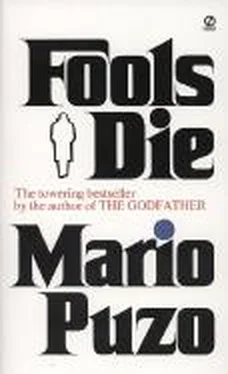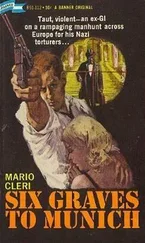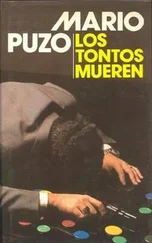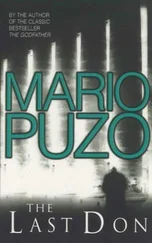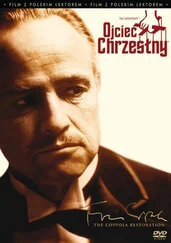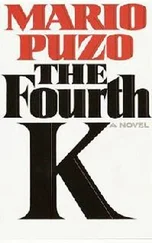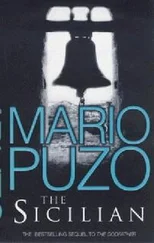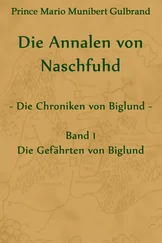Mario Puzo - Fools die
Здесь есть возможность читать онлайн «Mario Puzo - Fools die» весь текст электронной книги совершенно бесплатно (целиком полную версию без сокращений). В некоторых случаях можно слушать аудио, скачать через торрент в формате fb2 и присутствует краткое содержание. Жанр: Современная проза, на английском языке. Описание произведения, (предисловие) а так же отзывы посетителей доступны на портале библиотеки ЛибКат.
- Название:Fools die
- Автор:
- Жанр:
- Год:неизвестен
- ISBN:нет данных
- Рейтинг книги:3 / 5. Голосов: 1
-
Избранное:Добавить в избранное
- Отзывы:
-
Ваша оценка:
- 60
- 1
- 2
- 3
- 4
- 5
Fools die: краткое содержание, описание и аннотация
Предлагаем к чтению аннотацию, описание, краткое содержание или предисловие (зависит от того, что написал сам автор книги «Fools die»). Если вы не нашли необходимую информацию о книге — напишите в комментариях, мы постараемся отыскать её.
Fools die — читать онлайн бесплатно полную книгу (весь текст) целиком
Ниже представлен текст книги, разбитый по страницам. Система сохранения места последней прочитанной страницы, позволяет с удобством читать онлайн бесплатно книгу «Fools die», без необходимости каждый раз заново искать на чём Вы остановились. Поставьте закладку, и сможете в любой момент перейти на страницу, на которой закончили чтение.
Интервал:
Закладка:
I started studying the thick volumes of Army regulations, looking for all the legal loopholes through which draft victims could escape the Army. One of the first things I learned was that medical standards were lowered and raised arbitrarily. A kid who couldn’t pass the physical one month and was rejected for the draft might easily pass six months later. It all depended on what draft quotas were established by Washington. It might even depend on budget allocations. There were clauses that anyone who had had shock treatments for mental disorders was physically ineligible to be drafted. Also homosexuals. Also if he was in some sort of technical job in private industry that made him too valuable to be used as a soldier.
Then I studied my customers. They ranged in age from eighteen to twenty-five, and the hot items were usually about twenty-two or twenty-three, just out of college and panicked at wasting two years in the United States Army. They were frantic to enlist in the Reserve and just do six months’ active duty.
These kids all had money or came from families with money. They all had trained to enter a profession. Someday they would be the upper middle class, the rich, the leaders in many different walks of American life. In wartime they would have fought to get into Officers Candidate School. Now they were willing to settle for being bakers and uniform repair specialists or truck maintenance crewmen. One of them at age twenty-five had a seat on the New York Stock Exchange; another was a securities specialist. At that time Wall Street was alive with new stocks that went up ten points as soon as they were issued, and these kids were getting rich. Money rolled in. They paid me, and I paid my brother, Artie, the few grand I owed him. He was surprised and a little curious. I told him that I had gotten lucky gambling. I was too ashamed to tell him the truth, and it was one of the few times I ever lied to him.
Frank became my adviser. “Watch out for these kids,” he said. “They are real hustlers. Stick it to them and they’ll respect you more.”
I shrugged. I didn’t understand his fine moral distinctions.
“They’re all a fuckin’ bunch of crybabies,” Frank said. “Why can’t they go and do their two years for their country instead of tucking off with this six months bullshit? You and me, we fought in the war, we fought for our country and we don’t own shit. We’re poor. These guys, the country did good by them. Their families are all well-off. They have good jobs, big futures. And the pricks won’t even do their service.”
I was surprised at his anger, he was usually such an easygoing guy, not a bad word for anybody. And I knew his patriotism was genuine. He was fiercely conscientious as a Reserve master sergeant, he was only crooked as a civil servant
In the following months I had no trouble building up a clientele. I made up two lists: One was the official waiting roster; the other was my private list of bribers. I was careful not to be greedy. I used ten slots for pay and ten slots from the official lists. And I made my thousand a month like clockwork. In fact, my clients began to bid, and soon my going price was three hundred dollars. I felt guilty when a poor kid came in and I knew he would never work his way up the official list before he got drafted. That bothered me so much that finally I disregarded the official list entirely. I made ten guys a month pay, and ten lucky guys got in free. In short, I exercised power, something I had always thought I would never do. It wasn’t bad.
I didn’t know it, but I was building up a corps of friends in my units that would help save my skin later on. Also, I made another rule. Anybody who was an artist, a writer, an actor or a fledgling theater director got in for nothing. That was my tithe because I was no longer writing, had no urge to write, and felt guilty about that too. In fact, I was piling up guilt as fast as I was piling up money. And trying to expiate my guilts in a classical American way, doing good deeds.
Frank bawled me out for my lack of business instinct. I was too nice a guy, I had to be tougher or everybody would take advantage of me. But he was wrong. I was not as nice a guy as he thought or the rest of them thought.
Because I was looking ahead. Just using any kind of minimum intelligence, I knew that this racket had to blow up someday. There were too many people involved. Hundreds of civilians with jobs like mine were taking bribes. Thousands of reservists were being enlisted in the six months’ program only after paying a substantial entrance fee. That was something that still tickled me, everybody paying to get into the Army.
One day a man of about fifty came in with his son. He was a wealthy businessman, and his son was a lawyer just starting his practice. The father had a bunch of letters from politicians. He talked to the Regular Army major, then he came in again on the night of the unit’s meeting and met the Reserve colonel. They were very polite to him but referred him to me with the usual quota crap. So the father came over with his son to my desk to put the kid’s name down on the official waiting list. His name was Huller and his son’s name was Jeremy.
Mr. Hiller was in the automobile business, he had a Cadillac dealership. I made his son fill out the usual questionnaire and we chatted.
The kid didn’t say anything, he looked embarrassed. Mr. Hiller said, “How long does he have to wait on this list?”
I leaned back in my chair and gave him the usual answer. “Six months,” I said.
“He’ll be drafted before then,” Mr. Hiller said. “I’d appreciate it if you could do something to help him.”
I gave him my usual answer. “I’m just a clerk,” I said. “The only people that can help you are the officers you talked to already. Or you could try your congressman.”
He gave me a long, shrewd look, and then he took out his business card. “If you ever buy a car, come to see me, I’ll get it for you at cost.”
I looked at his card and laughed. “The day I can buy a Cadillac,” I said, “I won’t have to work here anymore.”
Mr. Hiller gave me a nice friendly smile. “I guess that’s right,” he said. “But if you can help me, I’d really appreciate it”
The next day I had a call from Mr. Hiller. He had the ersatz friendliness of the salesman con artist. He asked after my health, how I was doing and remarked on what a fine day it was. And then he said how impressed he was with my courtesy, so unusual in a government employee dealing with the public. So impressed and overcome with gratitude that when he heard about a year-old Dodge being offered for sale, he had bought it and would be willing to sell it to me at cost Would I meet him for lunch to discuss it?
I told Mr. Huller I couldn’t meet him for lunch but I would drop over to his automobile lot on my way home from work. He was located out in Roslyn, Long Island, which wasn’t more than a half hour away from my housing project in the Bronx. And it was still light when I got there. I parked my car and wandered around the grounds looking at the Cadillacs, and I was smitten by middle-class greed. The Cadillacs were beautiful, long, sleek and heavy; some burnished gold, others creamy white, dark blue, fire engine red. I peeked into the interiors and saw the lush carpeting, the rich-looking seats. I had never cared much about cars, but at that moment I hungered for a Cadillac.
I walked toward the long brick building and passed a robin’s-egg blue Dodge. It was a very nice car that I would have loved before I walked through those miles of fucking Cadillacs. I looked inside. The upholstery was comfortable looking but not rich. Shit.
In short, I was reacting in the style of the classically nouveau riche thief. Something very funny had happened to me the past months. I was very unhappy taking my first bribe. I had thought I would think less of myself, I had always so prided myself on never being a liar. Then why was I so enjoying my role as a sleazy small-time bribe taker and hustler?
Читать дальшеИнтервал:
Закладка:
Похожие книги на «Fools die»
Представляем Вашему вниманию похожие книги на «Fools die» списком для выбора. Мы отобрали схожую по названию и смыслу литературу в надежде предоставить читателям больше вариантов отыскать новые, интересные, ещё непрочитанные произведения.
Обсуждение, отзывы о книге «Fools die» и просто собственные мнения читателей. Оставьте ваши комментарии, напишите, что Вы думаете о произведении, его смысле или главных героях. Укажите что конкретно понравилось, а что нет, и почему Вы так считаете.
